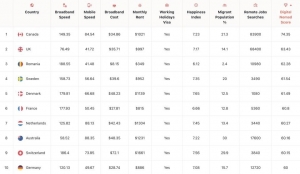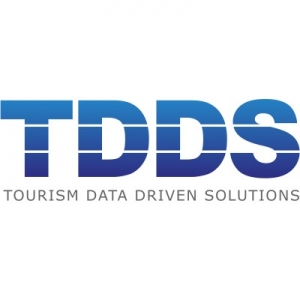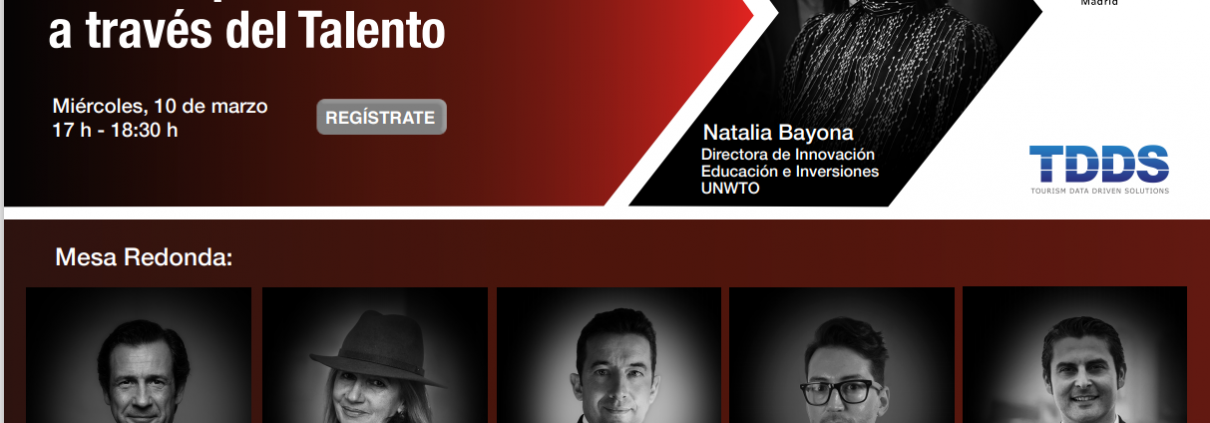Today, when a significant part of the teleworking population and mobility restrictions due to the pandemic extraordinarily limit travel, we must focus our efforts on taking advantage of the hidden opportunities that the current situation offers us and put aside the continuous and sterile complaint. While it is true that this pandemic and the health crisis that accompanies it is supplying an economic shock for our country in terms of GDP and unemployment unprecedented in our recent history, there are new phenomena that if we pay the necessary attention we could draw practical lessons . Good proof of this is the change that the irruption of teleworking has meant in our daily lives. In a country like Spain, accustomed to almost total presence and limited geographical mobility, teleworking has opened up a series of opportunities that have not been seen until now.
Being at the gates of the beginning of the end of this long and dark tunnel that has been the Covid-19, immersed in national vaccination plans and the gradual lifting of restrictions on mobility, they are perceived as aspects of telework have come to stay. The flexibility posed by novel models, feasible thanks to new technologies, such as the “digital nomad”, allow us to extraordinarily expand the capacities of human capital and the recruitment and use of talent regardless of geographical location. This aspect has not gone unnoticed by some governments that have introduced special work visas with which to promote a new form of mobility and “semi-residence” with which to attract highly qualified professionals. In the same way, the wealth generated by these “digital nomads” reverts positively both to the host country and to the economy where the parent company is located.
For example, Circle Loop has conducted an interesting study taking into account multiple factors, ranging from the cost of living and the speed of connections, to rental prices and remote job searches, and including the Global Happiness Index.
 The ranking is led by Canada, revealing itself as one of the largest technology centers in the world, obtaining maximum scores in all sections. Likewise, it is considered one of the most receptive and welcoming countries globally, as evidenced by the fact that more than 21% of its population is made up of immigrants. This means that some countries are taking advantage of these circumstances to attract talent. Source
The ranking is led by Canada, revealing itself as one of the largest technology centers in the world, obtaining maximum scores in all sections. Likewise, it is considered one of the most receptive and welcoming countries globally, as evidenced by the fact that more than 21% of its population is made up of immigrants. This means that some countries are taking advantage of these circumstances to attract talent. Source
In this sense, in Spain initiatives such as the Canarian government are emerging, which aims to attract digital nomads to a favorable environment and climate, with the slogan “The office with the best climate in the word”. Source
Although our culture is not as permeable as the Anglo-Saxon in relation to remote work, Spain and its productive fabric have the obligation to explore these innovative proposals. With serious problems of youth unemployment, as recently published by the Spanish Youth Council (46% of the unemployment destroyed during 2020 has been young employment), and serious territorial imbalances derived from the demographic emptying of the interior regions, we must bet without doubts along the path set by the guidelines of the EU strategy. Programs such as Erasmus or Next Generation EU are a good example of what has been said that would also strengthen the field of social inclusion and the development of European identity. One of the main challenges of our country is to attract talent, be able to attract or reconvert the “know how” of human capital from the tourism sector at the service of an economy that will necessarily have to diversify, regardless of whether tourism will continue to play a role. central role for our future. Without a doubt, digitization with this “little revolution” will succeed in transforming our economy as required by the current global conditions.
 We invite you to register for our next webinar “The Recovery of Tourism through Talent” axis of the first FITUR TALENT webinar as a prelude to FITUR 2021. It will be held on March 10 at 5:00 p.m. (CET) and will deal with preparation, recruitment and retention of talent as keys to the future profitability and competitiveness of the global tourism industry.
We invite you to register for our next webinar “The Recovery of Tourism through Talent” axis of the first FITUR TALENT webinar as a prelude to FITUR 2021. It will be held on March 10 at 5:00 p.m. (CET) and will deal with preparation, recruitment and retention of talent as keys to the future profitability and competitiveness of the global tourism industry.
This webinar will feature Natalia Bayona, Director of Innovation, Education and Investments of the UNWTO, as the main speaker, and a round table in which will participate: Antonio López de Ávila, President and CEO of TDDS, Matilde Almandoz, president of the MICE Forum ; Carlos Díez de la Lastra, director of Les Roches Marbella; Xavi Martín, CEO of Turijobs and Juan Apresa, corporate director of Talent Management Palladium Hotels Group.
By: Marta Castander Gotor, Directora de Operaciones
Register:
💻 https://us02web.zoom.us/webinar/register/WN_xskZrxxQSgqf7uRnhaH_dw




Leave a Reply
Want to join the discussion?Feel free to contribute!